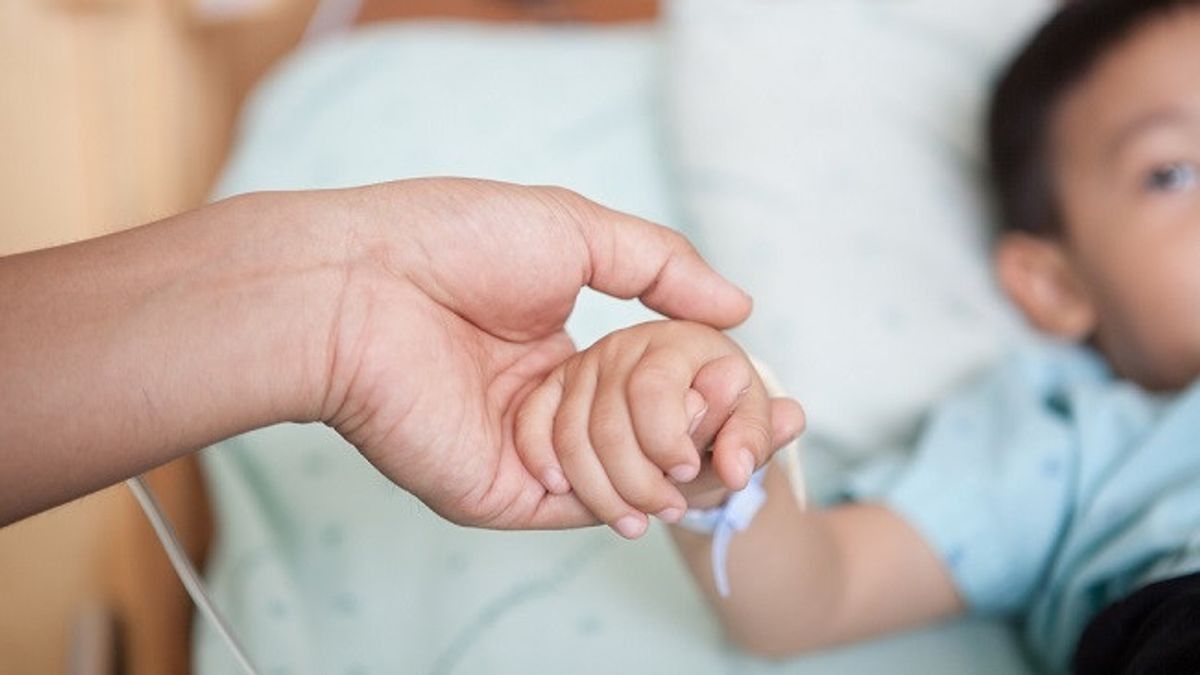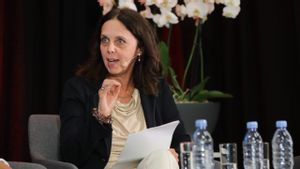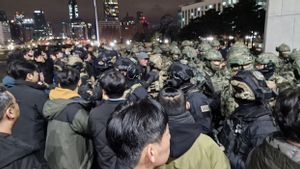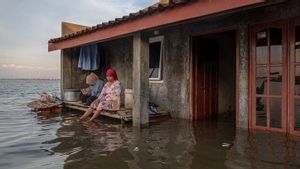JAKARTA - The DKI Jakarta Health Office noted a sharp increase in dengue hemorrhagic fever (DHF) cases in the capital city. As of February 19, 2024, there were 627 cases of dengue fever.
Currently, the ratio index (IR) or the incidence rate of dengue cases is 5.57/100,000 residents. Meanwhile, in early January, the case incidence rate was still around 1 to 2.2/100,000 residents.
"Based on the trend of weekly case data in 2024, there has been an increase in cases compared to the early week of January. Currently, the 9th week has entered, case data shows a sharp increase starting the 5th week, namely in early February," said Head of the DKI Jakarta Health Office Ani Ruspitawati in her statement, Friday, March 1.
The distribution of dengue cases in Central Jakarta was 34 cases, North Jakarta as many as 74 cases, West Jakarta as many as 208 cases, South Jakarta as many as 145 cases, East Jakarta as many as 161 cases, and the Thousand Islands as many as 5 cases.
"We continue to monitor the development of dengue cases in every Jakarta area. So far, there have been no deaths recorded in this case," said Ani.
Ani asked the public to be aware of dengue symptoms. Among them are marked by a 27-day fever accompanied by manifestations of bleeding, decreased platelets (trombocytopenia), the presence of hemaksentration marked by plasma leakage (increased hematothetics, athetics, efusion of pleura, hypoalbuminemia).
There are also several other symptoms of dengue, such as headaches, muscle and bone aches, skin rashes or back pain of the eyepiece.
Not all who are infected with the dengue virus will show manifestations of severe dengue fever. There are only mild fever that will recover by itself or even some without symptoms of illness (asymptomatic). Some are suffering from dengue fever which does not cause plasma leakage and causes death," said Ani.
Ani added that the humidity is high and the increasing rainfall has the potential to increase the DHF infection vector, namely the Aedes aegypti mosquito. Thus, it is necessary to make massive efforts to control the DHF vector by involving the participation of all aspects of society in seven arrangements, namely settlements, offices, educational institutions, public places, places for food management, health care facilities, and sports facilities.
"We urge residents to be vigilant and apply PSN (to eradicate mosquito nests) 3M (to drain, close, recycle) Plus or other activities that prevent breeding and bite of aedes aegypti mosquitoes," explained Ani.
SEE ALSO:
Furthermore, Ani has also instructed all health care facilities in Jakarta to be able to carry out early detection and procedures for dengue cases according to standards, as well as prepare the availability of treatment rooms and logistics for patient care.
"All health facilities in Jakarta are ready to serve the community if they are infected with dengue fever," he concluded.
The English, Chinese, Japanese, Arabic, and French versions are automatically generated by the AI. So there may still be inaccuracies in translating, please always see Indonesian as our main language. (system supported by DigitalSiber.id)














